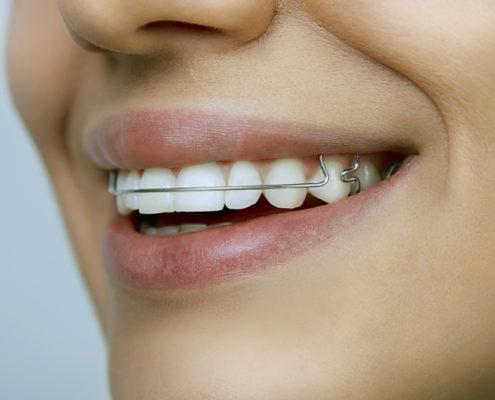If you’ve just started wearing your retainer, you may be wondering, is it normal for my retainer to feel tight at first? The answer is yes. It’s completely common for Dental Retainers to feel snug, especially during the initial days or weeks of wearing them. This tightness indicates that the retainer is working to help maintain your teeth’s alignment. However, it’s important to understand why this happens and how to deal with it.
Why Does My Retainer Feel Tight?
After you finish orthodontic treatment, your teeth are still adjusting to their new positions. Your retainer helps to stabilize them, but this can sometimes lead to temporary tightness or discomfort.
-
The retainer is applying pressure to prevent teeth from shifting
-
Teeth are still settling into their new positions after braces or aligners
-
Tightness is common when starting with a new or adjusted retainer
-
Your retainer may need some time to mold perfectly to your teeth
While this tightness may be uncomfortable, it’s a necessary part of keeping your teeth in place after treatment.
How Long Should the Tightness Last?
If your retainer feels tight, you may be wondering how long this discomfort will last. Typically, the tightness will decrease as your teeth become accustomed to the retainer.
-
First few days to weeks: Tightness is most noticeable as your teeth adjust
-
Gradual improvement: You should feel less discomfort each day
-
Long-term wear: After the initial period, retainers should feel more comfortable
-
Contact your orthodontist if discomfort doesn’t subside within a week
If the tightness persists for more than a few days, it’s a good idea to contact your orthodontist to ensure everything is fitting properly.
What to Do If Your Retainer Feels Too Tight?
In some cases, your retainer might feel too tight, to the point of causing pain or difficulty in wearing it. It’s important to address these issues promptly to prevent damage or discomfort.
-
Wear the retainer for short periods to get used to it gradually
-
Use orthodontic wax to reduce irritation on your gums and mouth
-
Check for any sharp edges or areas of the retainer that may be causing excessive pressure
-
Contact your orthodontist for adjustments if necessary
Small adjustments can often make a big difference in comfort, allowing you to wear your retainer as prescribed.
Is Tightness a Sign That the Retainer Needs Adjustment?
Sometimes tightness is simply a result of your retainer trying to do its job, but it could also indicate that the retainer is not fitting properly. If you experience unusual discomfort, it’s worth having your retainer checked.
-
Tightness after a long break: If you’ve missed several days or weeks of wear
-
Tightness in a new retainer: If it’s freshly made or altered
-
Pain or difficulty wearing: If it becomes too painful to keep in
-
Retainer might need resizing: If it doesn’t fit comfortably after adjustment
Always consult your orthodontist if you’re unsure whether the tightness is a natural part of the process or a sign that adjustments are needed.
How to Make Wearing Your Retainer More Comfortable?
While tightness is normal, there are ways to ease the discomfort and ensure that your Best Dental Retainers is as comfortable as possible.
-
Clean your retainer regularly to avoid buildup or irritation
-
Follow a gradual wear schedule if starting with a new retainer
-
Use a saltwater rinse for soothing your gums and reducing discomfort
-
Keep your retainer in its case to avoid damaging it when not in use
Establishing a comfortable routine and proper care for your retainer can make wearing it much easier.
Final Thoughts:
In conclusion, is it normal for my retainer to feel tight at first? Yes, it’s completely normal, and usually, the tightness will lessen with time as your teeth adjust to the retainer. Retainers are a key part of ensuring that your smile stays straight and aligned after treatment, so it’s important to wear them consistently and properly.
-
Tightness indicates proper function of the retainer
-
Short-term discomfort is typically part of the adjustment period
-
If discomfort persists, contact your orthodontist for assistance
-
Comfort and consistency will make retainer wear much easier over time
Remember, wearing your retainer as instructed is essential for maintaining your beautiful smile for years to come.







